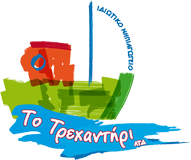Parents are provided with a three-month program that describes the curriculum material as it unfolds at school. All the learning activities are part of the constantly updated curriculum material that the school provides to all children with no further obligations for parents.

Program
New methods and tools
The school has been reinforcing its preschool program with new methods and tools rendering it its final reception class into a very strong academic class with a closure that more than prepares the child for its elementary schooling.
The program from 1.30 to 2.30 pm OFFERS the option of English in order to facilitate children into becoming bilingual via its very creative nature. Other extracurricular optional activities such as Arts and Crafts & Theatrical motion and expression are also available as are Music classes and BrainOBrain mathematical classes

Format
Divided into two parts
The learning program is divided into two parts. The period between 8-9:30 am is dedicated to the creative, symbolic and expressive use of a variety of tools and materials in ‘’handicraft’’ areas set up by the teacher , considered an integral part of the cognitive/symbolic expressions involved in learning. The period between 11-12:30 provides a more structured learning format for the children with experiments, hypothesis, discussions, sorting and comparing of materials recognizing symbols, graphic presentations, observations, documentation, story- telling, pre-writing skills and songs. The free out-door play time ranges from one to one and a half hours, depending on the age group and it combines free and organized outdoor play.

Preparing
for the school journey
Trehandiri regards the smooth transition of a child from home to school as a prerequisite goal that is successfully accomplished usually within a week, by establishing a one to one relationship with a well trained teacher. This can be done either directly in the morning for older newcomers or in May and June afternoons for younger children in preparation for September morning attendance. With this nurturing and secure approach we manage to establish the right attachment bond.
Alternatively the school sets up an afternoon class during the months of May and July for newcomers thus ensuring a smooth transference into the mainstream July or September program.

Learning
is child – oriented
Teachers prepare an environment rich in materials and possibilities to ensure that the learning material fits all children’s aptitudes and abilities, it encourages the children to create ideas and hypothesize and it becomes a process of inviting and sustained learning. Projects provide a structure to children’s learning experience as they actively interact with the curriculum material which unfolds and branches out into further information. This methodology aims to enhance children’s “how to think” ability.

Experiential
Experimental learning
Once a month “special visitors” –professionals are invited to unfold narrative / acoustic and or sensory presentation, learning material applicable to their profession ( vet, doctors in different specialized fields, natives from different countries and cultures of the world such as Asians, Africans, Europeans and creative artists such as musicians, traditional dancers and so on.

Music & kinetics
Music and kinetic expression
Music and kinetic expression are important in the child’s development and self – actualization and are included in the school curriculum in collaboration with an “external professional team”.

Emotional 19
Build self reliance, competency empathy, utility and self-control
As part of the mainstream learning material the school has introduced the step –two curriculum (an American program promoting social skills and healthy sense of self), as a tool to build self reliance, competency empathy, utility and self-control.

Dexterities
Encourage and developing pre-writing, pre-anagnostic and pre-maths skills and concepts
By the age of three and onwards the school provides children with books aimed at encouraging and developing pre-writing, pre-anagnostic and pre-maths skills and concepts. A speech therapist and an occupational therapist provide a free evaluation of the children’s abilities once a year.
